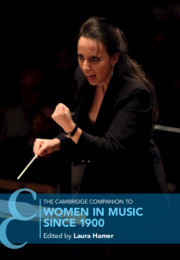This article explores how historical musicology can use computational methods within a minimal computing framework, recovering the performance histories of three migrant musicians, producing valuable new information about their careers. Líza Fuchsová, Maria Lidka, and Paul Hamburger all left Nazi-occupied Europe during the late 1930s and settled permanently in the UK. Fuchsová (1913-1977) was a Czech pianist who became an advocate for Czech musical culture as well as an important piano soloist; Hamburger (1920-2004) was an accompanist and teacher who left Vienna for London and became a senior figure in BBC radio and Guildhall professor; and Lidka (1914-2013) [Marianne Liedtke], was a violinist, orchestra leader and later Royal College of Music professor. Their careers have been underexplored, but machine-read digitised archives have opened new possibilities for finding and sorting what can seem like an overwhelming amount of performance data. This article uses a minimal computing led approach to demonstrate building a robust and accessible structure to interrogate performance data and establish performance histories. This article will demonstrate the value of this framework and will show how it can be applied to historical musicology work.


